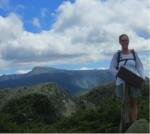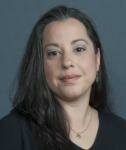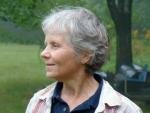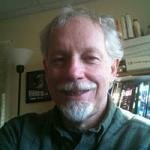Acadia Learning Team
Hannah Webber is the Education Projects Manager for Acadia Learning projects. She manages the day-to-day of the projects, runs teacher workshops and summer institutes, and is always on the lookout for new research questions that will lend themselves to Scientist-Teacher-Student Partnerships.
Hannah has taught kindergarteners to adults in a variety of formal and informal education programs, including a term as Interim Director of Fields Pond Audubon Center. She has also been on research teams investigating behavioral effects of methylmercury; genetic bases of wound healing; and the effects of PCBs on stream macroinvertebrate communities.
When not busy with Acadia Learning projects Hannah is hiking or looking for cool invertebrates in tidepools.
Sarah Nelson received M.S. and Ph.D. degrees in Ecology and Environmental Sciences at the University of Maine. Her research includes atmospheric deposition, surface water acidification, watershed mass balances, climate effects on water resources, and spatial geochemical modeling, with a strong focus on mercury fate and transport. Sarah’s research tends to focus on multivariate, spatial problems, so she is as much a quantitative landscape ecologist as a biogeochemist. She worked on long-term research at paired gauged watersheds in Acadia National Park, and was a Canon National Parks Science Scholar. She is currently an Assistant Research Professor at UMaine’s Senator George J. Mitchell Center for Environmental and Watershed Research and School of Forest Resources. She recently completed Resource Condition Assessments for four National Parks, and has been working with 25 parks to evaluate mercury in biota, using citizen scientist-collected data. She is a principal investigator for U.S. Environmental Protection Agency’s long term monitoring network, including research regarding mercury and landscape context for lakes in the northeast U.S. For the past five years, she has worked with Schoodic Institute at Acadia National Park in a series of projects focused on teacher professional development regarding mercury in watersheds, snowpack and climate, and data literacy.
Ryan Weatherbee is a Research Associate at the University of Maine’s Satellite Oceanography Laboratory and contributes part-time to the Acadia Learning Team as an Education and Research Assistant. Presently, he is assisting with assessment-related tasks for the Data Literacy project. Ryan’s background in science has centered on the marine environment. He obtained a bachelor’s degree in Marine Biology from Dalhousie University, an advanced diploma in Remote Rensing/GIS at the Centre of Geographic Sciences in Nova Scotia, and a Master of Science in Teaching from the University of Maine. Ryan has participated in and published scientific papers on oceanographic and ecological research primarily within the Gulf of Maine and the California Current. He has tremendously enjoyed interacting with the cooperating educators and Acadia Learning Team staff and looks forward to future endeavors.
Molly Schauffler, Ph.D., Assistant Research Professor, University of Maine School of Earth and Climate Sciences, Climate Change Institute and Center for Research in STEM Education. Dr. Schauffler also coordinates science programing at the University of Maine Hutchinson Center in Belfast. She is interested in supporting teachers to incorporate real data into science teaching so that students are motivated to investigate and understand the changes that are taking place around them.
Bill Zoellick studied curriculum evaluation with Robert E. Stake at the University of Illinois in the early 1970s, followed by a 30-year career in computer science, software development, and management consulting. He returned to education research in 2005 and has since served as principal investigator or co-PI on a number of grants funded by the Maine Department of Education, NOAA, and NSF. His research focuses on teacher participation in communities of practice, teacher leadership and its relationship to project scalability and sustainability, and learning through engagement in citizen science.
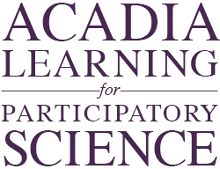
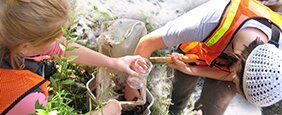 Acadia Learning brings scientists, teachers, and students together in partnerships that result in useful research and effective science education.
Acadia Learning brings scientists, teachers, and students together in partnerships that result in useful research and effective science education.